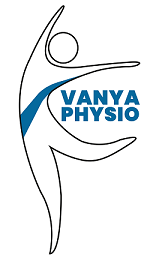Erectile dysfunction (ED) is a common condition that affects men of all ages, causing difficulties in achieving or maintaining an erection. In this article, you will find the uses of Physiotherapy for Erectile Dysfunction and how it can help in sexual life. While there are various treatment options available, including medications and psychological therapies, physiotherapy is an emerging approach that can provide significant benefits for men with ED. In this blog post, we will explore the role of physiotherapy in treating erectile dysfunction and how it can help improve sexual function and overall quality of life.
Physiotherapy for Erectile Dysfunction
Physiotherapy can play a significant role in the treatment of erectile dysfunction (ED). Through targeted exercises and techniques, physiotherapists can help men strengthen their pelvic floor muscles, which are essential for maintaining erectile function. Pelvic floor exercises, such as Kegels, can enhance blood flow to the penis and improve erectile function.
In addition, physiotherapists may utilize biofeedback techniques to provide real-time feedback on muscle activity and help men gain better control over their pelvic floor muscles. Lifestyle modifications and psychological support are also integral parts of physiotherapy for ED says Doctor PK Gupta. He further added that By addressing the underlying causes and providing comprehensive care, physiotherapy can be a valuable and effective approach to managing erectile dysfunction and improving sexual well-being. You can read this article from medicinenet.com which talk about How Long Can Erectile Dysfunction Last?
Understanding Erectile Dysfunction
Before delving into the role of physiotherapy, it’s important to understand the underlying causes of erectile dysfunction. ED can be attributed to various factors, including vascular issues, nerve damage, hormonal imbalances, psychological factors, or a combination of these. Physiotherapy can address some of these underlying causes and provide targeted treatment for men with ED.
Pelvic Floor Muscle Exercises
One of the primary focuses of physiotherapy for erectile dysfunction is the pelvic floor muscles. These muscles play a crucial role in maintaining erectile function by supporting blood flow to the penis. Weak or dysfunctional pelvic floor muscles can contribute to difficulties in achieving or maintaining an erection. Physiotherapists specialized in pelvic floor rehabilitation can teach men specific exercises to strengthen these muscles, known as pelvic floor exercises or Kegel exercises. By strengthening the pelvic floor muscles, blood flow to the penis can be enhanced, leading to improved erectile function.
Biofeedback Techniques
In addition to pelvic floor exercises, physiotherapists may utilize biofeedback techniques to aid in the treatment of erectile dysfunction. Biofeedback involves using specialized devices to provide real-time feedback on muscle activity and function. This can help men become more aware of their pelvic floor muscles and learn to control them effectively. Biofeedback can enhance the effectiveness of pelvic floor exercises, ensuring that the correct muscles are being targeted and engaged.
Lifestyle Modifications
Physiotherapists can also provide guidance on lifestyle modifications that can positively impact erectile function. This may include recommendations for weight management, regular exercise, and improving overall cardiovascular health. Lifestyle changes such as quitting smoking, reducing alcohol consumption, and managing stress levels can also contribute to improved erectile function. Physiotherapists work closely with patients to develop personalized plans that address individual needs and goals.
Psychological Support
Psychological factors can play a significant role in erectile dysfunction. Physiotherapists trained in sexual health can provide psychological support and counseling to address any emotional or psychological barriers that may be contributing to ED. By addressing underlying psychological issues, such as anxiety, depression, or performance anxiety, physiotherapy can help alleviate these factors and improve sexual confidence and performance.
Collaborative Approach
Physiotherapy for erectile dysfunction often involves a collaborative approach between the physiotherapist, the patient, and other healthcare professionals. This may include urologists, sex therapists, or psychologists. By working together as a team, comprehensive care can be provided, addressing the various aspects of erectile dysfunction and tailoring treatment to each individual’s needs.
Conclusion
Physiotherapy offers a holistic and effective approach to treating erectile dysfunction. By targeting the pelvic floor muscles, utilizing biofeedback techniques, providing lifestyle modifications, and offering psychological support, physiotherapy can significantly improve erectile function and overall sexual well-being. Men experiencing erectile dysfunction should consider incorporating physiotherapy into their treatment plan, under the guidance of a specialized physiotherapist. With the right approach and a collaborative effort, men can regain confidence, enhance sexual function, and improve their quality of life.


